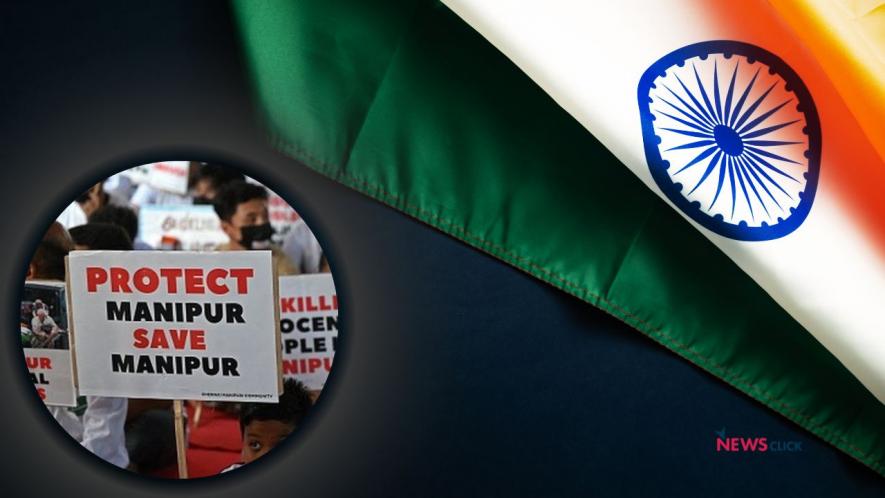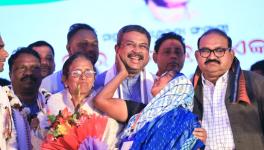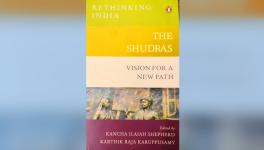Manipur’s Vital Lesson: Independence Meant People get a Voice

Congress leader Rahul Gandhi’s hard-hitting statement in the Lok Sabha on 9 August during the no-confidence motion against the Narendra Modi government was hard-hitting and bold. He said India is a voice which people and leaders must hear. He later reiterated his remarks, though partially deleted from the record in Parliament, in which he had targeted the ruling party and government by saying ‘Bharat Mata had been murdered in Manipur’. In fact, a lot of what Rahul said in and outside Parliament reflects what Mahatma Gandhi and first prime minister Jawaharlal Nehru had said in their time.
Gandhi and Nehru on India’s Voice
The leadership of the freedom struggle had asserted that India’s British rulers never heard the voice of millions mired in misery, poverty, illiteracy and subjugation of colonial rule, apart from the domination and exploitation of caste, patriarchy and primordial identity. Mahatma Gandhi wrote to Hitler on 24 December 1940, appealing to save humanity from the impending Second World War. He noted how he could hear the cries for peace of millions of Europeans, for his ears were always seeking out the voices of the silently suffering [in India].
On 28 July 1947, at a prayer meeting in Delhi, Mahatma Gandhi addressed whether the Congress party would become a communal organisation and India a Hindu country because some Muslim leaders demanded a separate nation based on religion. He said the question betrayed sheer ignorance, that the Congress party could never become an organisation of the Hindus, and those who sought to define it would harm India and Hinduism. “India is a country of millions, but their voice is not heard,” Gandhi said.
A peep into Nehru’s historical ‘tryst with destiny’ speech delivered on midnight 14 August 1947 in the Constituent Assembly to mark India’s independence from British rule also addresses the voice of India. He said, “A moment comes, which comes but rarely in history, when we step out from the old to the new, when an age ends, and when the soul of a nation, long suppressed, finds utterance.”
Subjugating Voice of India Hurts ‘Bharat Mata’
Nehru said the soul of a nation, long suppressed, finds utterance with freedom. In Manipur’s context, Rahul said India’s voice is being ignored by an insensitive State apparatus, which is why a so-called double-engine government could not control murder, mayhem, and rapes in a small state like Manipur. Prime Minister Modi’s studied silence on the violence and social divide in Manipur, the robbing of armouries by mobs, and pleas for help and peace from State BJP leaders and the people of Manipur demonstrate his unwillingness to hear the voices of India.
Even a letter from Manipur’s BJP Member of Parliament, Minister of State for External Affairs and Education Rajkumar Ranjan Singh, saying that the central government should prevent ethnic war in Manipur, got no attention from those at the helm of affairs. The Supreme Court, which finally took suo motu cognisance of the matter, described the situation in Manipur as nothing short of legitimate authority to govern gone missing.
Manipur teaches the vital lesson that governance rests on the sensitivity of the elected leadership to listen to the people.
Gandhi Cautioned Against Retaliatory Violence
Rahul interpreted the suppression of the voices of Indian people, the retaliatory killings in Manipur, and the indifference of the State, as nothing short of the murder of India, personified as ‘Bharat Mata’. His words closely parallel Mahatma Gandhi’s words five days before independence on 10 July 1947. Dealing with a question from Arthur Moore if there was a growing feeling of retaliation within people, Gandhi said, “I do not think this feeling will stay.” But Gandhi warned: “If it does, it will mean goodbye to freedom. India will commit suicide.” In other words, if retaliation took hold over the Indian people, it would amount to the destruction of India, which Rahul Gandhi personified as ‘Bharat Mata’.
Two days after independence, on 17 August 1947, Mahatma Gandhi said he was struggling to find some light against the all-pervading darkness. He said, “Bear in mind that India will be wiped out from the face of the earth if she rejects the path of non-violence.”
Today, a burgeoning cult of violence has manifested in several parts of India. As hate spreads in the name of religion, caste and ethnicity like never before, and a civil war-like situation prevails in Manipur, India’s togetherness and unity are at threat.
Not long ago, a Railway Protection Force constable shot dead his superior officer and then three other railway passengers whose faith he first identified. There have been clashes in the name of religion not far from the capital city in Haryana’s Mewat. Hate has spread deep, and those meant to protect people are, instead, taking lives.
Numerous lynchings of Muslims and Dalits by vigilantes and calls for genocide of minorities or their social and economic boycotts are dividing society along sectarian lines. These are ominous portends for the Indian Republic, which was born with the constitutional values of liberty, equality and dignity.
To Nehru, Indian People Were Bharat Mata
In his book, The Discovery of India, Nehru illuminatingly explained Bharat Mata. He wrote, “...the mountains and the rivers of India, and the forests and the broad fields, which gave us food....” it is ultimately the people of India who constituted Mother India. Therefore, as Rahul Gandhi said, the brutality against India amounts to cruelty against Bharat Mata. Even the Supreme Court has observed the “absolute breakdown of law and order and machinery of the State,” affirming Rahul’s broader point. It is, therefore, a categorical imperative to pay heed to Gandhi, Nehru and Rahul’s statements to salvage and defend the idea of India.
The author served as Officer on Special Duty to President of India KR Narayanan. The views are personal.
Get the latest reports & analysis with people's perspective on Protests, movements & deep analytical videos, discussions of the current affairs in your Telegram app. Subscribe to NewsClick's Telegram channel & get Real-Time updates on stories, as they get published on our website.
























